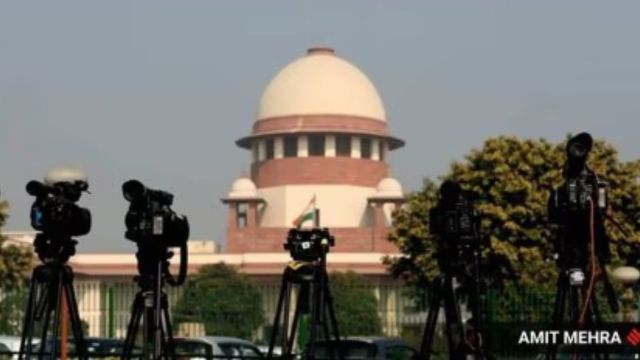In a significant ruling, the Supreme Court Friday held that the offence of abetment of suicide should not be invoked mechanically only to assuage the immediate feelings of the distraught family of the dead person, but must follow the higher threshold mandated by law.
The bench of Justices A S Oka and K V Viswanathan said the Supreme Court “has, over the last several decades, repeatedly reiterated the higher threshold, mandated by law for Section 306 IPC (now Section 108 read with Section 45 of the Bharatiya Nyaya Sanhita, 2023) to be attracted. They, however, seem to have followed more in the breach. Section 306 IPC appears to be casually and too readily resorted to by the police.”

Writing for the bench, Justice Viswanathan said, “While the persons involved in genuine cases where the threshold is met should not be spared, the provision should not be deployed against individuals only to assuage the immediate feelings of the distraught family of the deceased.”
Story continues below this ad
The ruling stated that “the conduct of the proposed accused and the deceased, their interactions and conversations preceding the unfortunate death of the deceased should be approached from a practical point of view and not divorced from day-to-day realities of life. Hyperboles employed in exchanges should not, without anything more, be glorified as an instigation to commit suicide.”
The bench said, “It is time the investigating agencies are sensitised to the law laid down by this Court under Section 306 so that persons are not subjected to the abuse of process of a totally untenable prosecution. The trial courts also should exercise great caution and circumspection and should not adopt a play-it-safe syndrome by mechanically framing charges, even if the investigating agencies in a given case have shown utter disregard for the ingredients of Section 306.”
The court said this while setting aside criminal proceedings against one Mahendra Awase who was manager of a cooperative society in Khargone in Madhya Pradesh.
Ranjeet Singh, the deceased in the case, had stood as guarantor for a loan availed from the society.
Story continues below this ad
In a suicide note, Singh said he was being harrassed by Awase over repayment of a loan which one Ritesh Malakar had taken from the society.
Awase approached the Supreme Court after the Madhya Pradesh High Court declined to drop the abetment to suicide charge against him.
Setting aside the High Court order, the bench of Justices Oka and Viswanathan said “to attract the ingredient of Section 306, the accused should have abetted the commission of a suicide. A person abets the doing of a thing who firstly, instigates any person to do that thing or secondly, engages with one or more other person or persons in any conspiracy for the doing of that thing, if an act or illegal omission takes place in pursuance of that conspiracy, and in order to the doing of that thing or thirdly, intentionally aids, by any act or illegal omission, the doing of that thing.”
The ruling stated that “in order to bring a case within the purview of Section 306 IPC, there must be a case of suicide and in the commission of the said offence, the person who is said to have abetted the commission of suicide must have played an active role by an act of instigation or by doing certain act to facilitate the commission of suicide. Therefore, the act of abetment by the person charged with the said offence must be proved and established by the prosecution before he could be convicted under Section 306 IPC.”
Story continues below this ad
It said that “to satisfy the requirement of instigation, the accused by his act or omission or by a continued course of conduct should have created such circumstances that the deceased was left with no other option except to commit suicide. It was also held that a word uttered in a fit of anger and emotion without intending the consequences to actually follow cannot be said to be instigation.”
Applying this principle to the present case, the bench said, “We are convinced that there are no grounds to frame charges under Section 306 IPC against the appellant. This is so even if we take the prosecution’s case on a demurrer and at its highest.”
It stated that a “reading of the suicide note reveals that the appellant was asking the deceased to repay the loan guaranteed by the deceased and advanced to Ritesh Malakar. It could not be said that the appellant, by performing his duty of realising outstanding loans at the behest of his employer, can be said to have instigated the deceased to commit suicide… It could certainly not be said that the appellant by his acts created circumstances which left the deceased with no other option except to commit suicide”.
“Viewed from the armchair of the appellant, the exchanges with the deceased, albeit heated, are not with intent to leave the deceased with no other option but to commit suicide. This is the conclusion we draw taking a realistic approach, keeping the context and the situation in mind. Strangely, the FIR has also been lodged after a delay of two months and twenty days,” it stated.









